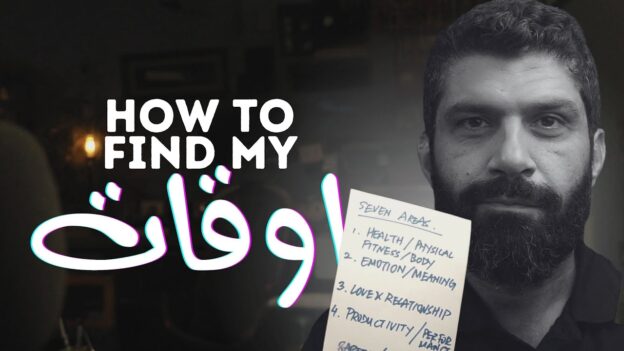Do you know how much a SIM costs? You know, SIMS, that small, usually-rectangular piece of plastic that you put in your phone – do you know how much that costs? If you want a mobile connection here in Pakistan, do you know the price you will pay to get that SIM?
Zero.

In fact, the mobile companies pay you to get their SIM. All SIMs nowadays come with some talk time minutes pre-loaded. And they have other free stuff included in the SIM too, stuff like free SMS minutes and Internet/data packages and what not.
But rewind 10 years, and we were paying for SIMs. And we were not only paying for them, we couldn’t simply get a SIM: you had to actually wait for your SIM to arrive. Mobilink was the undisputed market leader and was selling their newly introduced pre-paid Jazz SIMs by the tons!
And there was me, in college, with that gleam in my eye and that spunk in my step. I wanted to do something different, make tons of money and look cool doing it. This was college after all. Another friend of mine, he was interested in the same things. So we talked.
And critically, I knew a friend of a friend of a friend, who had this friend who worked in the Mobilink sales department.
The Business Idea
That dur daraz ka friend in Mobilink would be able to get us some SIMS at dealer rate. Yes, SIMs had dealers back then. The telco will sell their SIMs to their dealers, and you the customer can buy it only from the dealer. We wanted to be the dealer, just because we knew a friend of a friend of a friend. And we knew that we could sell some SIMs, given that we had that gleam in our eyes and that spunk in our steps.
Now this friend, this business partner friend, let’s call him Ahsan (because that’s his, like, real name) was suffering from Newofonitis: he just had to buy a new cell phone every second month (or week, if his budget allowed). This habit of his had allowed him to make some friends with cell phone retailers.
“I will get the SIMs at dealer rates and you’d help me sell them, we’d split the profit fifty fifty”
That’s it. That was the business plan. That was the deal.
Profit calculations were dead simple: dealer rate was 900 rupees per SIM. And the SIM was selling at an open market price of 1,100 rupees. Our friends were eagerly buying these SIMs for 1,100 a piece – yes, a SIM for eleven hundred. This was just the SIM cost by the way; they also charged for incoming calls back in the day, with SMSes costing both ways as well! What days!
Anyway, me and my friend decided to invest a total of eighty thousand rupees. Why eighty thousand? Well, because my business partner had forty.
All I had to do was beg, borrow (never steal) my part of the equity to keep the 50/50 profit ratio.
Raising Capital (aka Beg or Borrow)
For any venture, the proper order of steps is that you try to raise money via family and then friends (even Paul Graham says so )
So to raise “capital”, I had to look towards family (also, my friends were as broke as I was!).
Borrowing 40,000 rupees from Family, plus the 40k from my business partner, we ended up purchasing 88 SIMs. Yes. Just eighty eight.
88 x 200 and we stood a chance to earn a grand 17,000 rupee of pure profit. 8,500 a piece. And the cherry on this small, ugly yet tasty-as-hell cake was that this transaction was supposed to happen with a week.
I remember I was excited about the anticipated profits. 8,500 back then, for a undergrad, must have meant some good money.
8,500 in one week with 40k investment. We can repeat that every week, invest the 40k back, and sell more SIMs. We could become millionaires with our own chain of SIM retail shops all around the country! Aah yes! That gleam in our eyes and that spunk in our steps.
What happened next just blew us away.
Man
I remember finding out (I think I got a call from that friend of a friend of a friend in Mobilink) that our plans to buy more SIMs were to be put on hold. I was told that we were lucky to get the SIMs that we got, because the telco has closed off further SIM distribution – some thing to do with network loads and call quality.
No biggie, I thought. We had the SIMs. Our grand, nationwide plan had to wait. Let’s just sell the SIMs we had.
The plan was to keep 10 SIMs for each of us to sell to our friends. The remaining 68 SIMs were to be given to our contact, the cell phone retailer, who will help us sell the 68 SIMs within one week. We called him Man. Yes. Man.
This guy would end every sentence with “Man”. No matter that all his sentences were obviously in Urdu, but the “man” would not be missed. Asalamu Alaikum Man. How are you man? A cup of tea for you, man? aap kee sunglasses bauhat achee haiN, man. Man, I’m telling you this is how it works. And sometimes he’d throw in the Man Sandwich, something like: “Man, this is a good samosa, man”. So yeah, our man was Man.
A day after we delivered the 68 SIMs, we visited Man. “How many SIMs sold so far?” we asked.
“Sold three man,” he said. Gave us our share, kept his cut and we’d be done. What cut he was keeping I seriously can’t remember, but man, Man kept his cut.
The next day, the news was all over the place: the SIM that used to sell for 1,100 rupees in the open market was now selling at around 2,000 rupees!
Thanks to the indefinite hold on new SIMs by the only pre-paid telco, the existing SIMs were now in high demand. The demand was already high, but now it was through the roof.
The next day, we sold the last of our SIMs at around 2,500 rupees! We couldn’t be more excited. We went over to the cramped shop in Main Market’s basement, to the man himself. “How many sold?”
“2 SIMs sold man!”
“Just 2? Please give us the SIMs, we can sell on our own now.”
“But the SIMS are now distributed among different shops, and they are now selling them, man,” the man smiled.
One last SIM that we had, I think we sold for 4,000 rupees! The market rate was going bonkers.
Had it not been for Man, my first business would have been a roaring success, instead of the decent success that it turned out to be. Alhumdulillah.
We eventually did recover the money from Man. He actually told us that he would pay us the previously agreed-upon 200 rupees per SIM. We reminded Man that we agreed based on the price, not on 200 rupees. But he stalled. Kept stalling. It took us quite some time (months actually) to get our money back. I think we ended up going to his shop, giving him a lecture on honesty and then picking up a new, dabba packed cell phone to eventually cover the remaining balance.
When I have any discussion on ethics and honesty in business, I always suggest that one should start with trust and assume the best in others. A lot of people disagree, saying that the market is full of sleazy folks, waiting to con you out of your money; that’s when I think of Man. Man taught me to be as clear as possible in communicating our terms of business; we did tell him that we’d pay him 200 per SIM, instead it should have been a percentage-based agreement, and subject to changes in the market price. I sincerely hope that he is doing well, has become more fair-minded and that he never stops saying man.
+++
This was my first business where I invested money. And my first business where I had a business partner. Although it was as small as they come, I still cherish this little experiment so many years ago.
I know, some may not call this venture a business. My definition is simple: anything that leaves money in the end, is a good business. How much money? That’s a matter of scale, the principles remain the same.
[notification type=”alert-info” close=”false” ]Question: do you have your “first business story”? Any “Man” that taught you an expensive lesson? Join the conversation on Facebook (click this link to go to the FB post for this article).[/notification]



